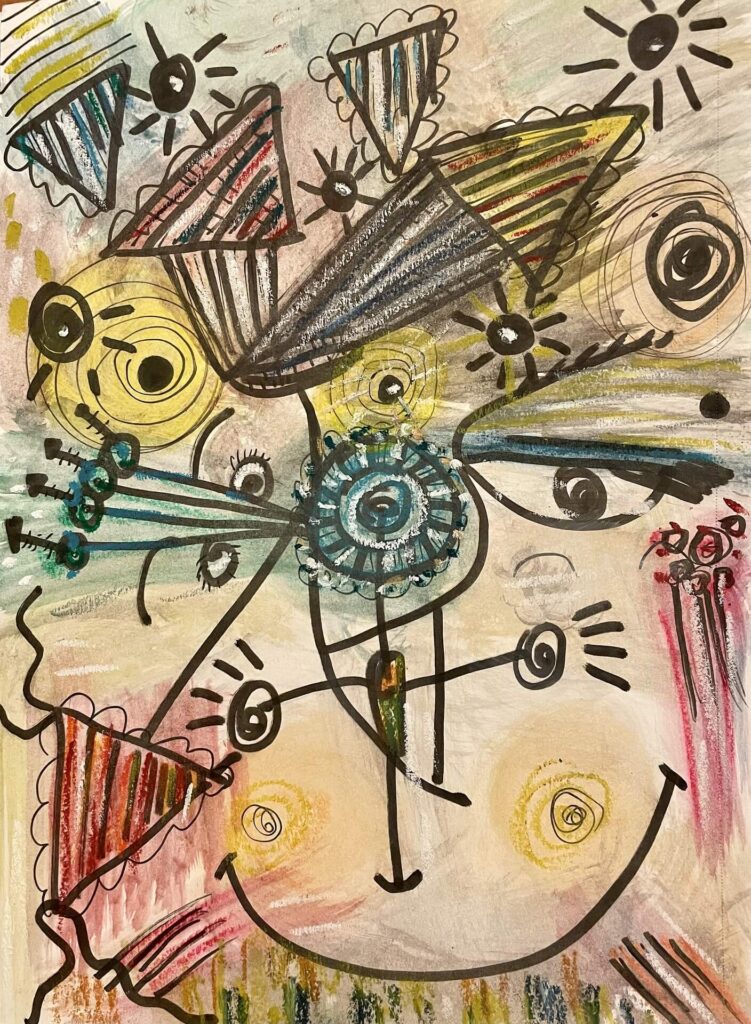The Power of Applied Intuition
“The intuitive mind is a sacred gift and the rational mind is a faithful servant. We have created a society that honors the servant and has forgotten the gift.”
Albert Einstein

Applied intuition is the practice of using intuition to make better decisions, solve problems, and achieve goals. It’s incredibly powerful, but we often discount it. Why?
Our obsession with logic vs. intuition
Our society values logic over intuition. This is a huge mistake.
Let’s say you’ve just quit your high-paying corporate job to pursue your true passion: music. Imagine explaining that decision to a friend logically. You list all of the reasons that you needed to make a change. Then you lay out all of the arguments for why music is the right choice to make. You detail the various scenarios for how your music career could play out, which you’ve researched exhaustively. They’re skeptical, but they’re comforted by the amount of thought you’ve put into it.
Now imagine explaining the decision to a friend intuitively. You say, “I just knew this was the right thing for me to do.” You can probably hear the incredulous reply: “You just knew? What do you mean, you just knew!? What kind of reasoning is that?”
Is one explanation better than the other? No. They’re both valid. But this is the problem. Society sees only one of these explanations as acceptable.
We don’t see intuitive reasoning as a valid form of reasoning; only logical reasoning is acceptable. Even if we’ve made a decision intuitively, we’re likely to explain it to our friends and family in logical terms because we believe this is more socially acceptable.
The best decisions come when humans use all of the decision-making faculties at their disposal. This means applied intuition and logic. But many of our biggest decisions in life: where to live, who to marry, what job to do… are mostly intuitive decisions. We just feel the need to explain them logically. Sometimes… we do just know. And that can be enough.
Intuition is a superpower
Intuition emerges from the processing of information by our subconscious mind, which is faster and more efficient than our conscious mind. Our subconscious mind is constantly processing information from our senses and past experiences and can detect patterns and make connections that our conscious mind is unaware of.

When we have an intuitive feeling or hunch, it is likely the result of our subconscious mind discerning a pattern or making a connection that our conscious mind has not yet recognized.
This is a rich source of information, as our subconscious mind is able to process a vast amount of information that our conscious mind would find overwhelming.
Enhancing your intuitive abilities
Intuition is commonly described as a “gut feeling” or a “hunch” that comes from a deeper level of awareness than our conscious mind. It is a sense of knowing that can’t be explained by reason or evidence.
Applied intuition is learning to recognize and trust this inner voice to guide your actions and decisions. With practice, your intuition will become sharper and more accurate. Here are five ways to hone it.
#1. Listen to your body.
Your physical sensations are often a powerful source of intuition. If something feels “off” or uncomfortable in your body, it may be a sign that something is not right in your life or a particular situation. For example, the hair standing up on the back of your neck is often a warning sign triggered by an unconscious perception of danger or threat. Pay attention to your body’s signals and use them to guide your actions.
#2. Cultivate stillness.
Intuition often arises in moments of stillness and quiet. Taking time to meditate, reflect, journal, or simply be still can help you connect with your intuition and hear its messages more clearly.
#3. Trust your first impressions.
The first impression we have of a person or situation is often the most accurate. If something feels “off” or “right” in the first few moments of an interaction, trust that feeling and use it to guide your behavior.
#4. Practice active listening.
Listening to others with an open mind and heart can help you tune into your intuition. When you are fully present and engaged in a conversation, you may pick up on subtle cues or messages that can inform your decisions.
#5. Take action.
Intuition is only valuable if you act on it. Once you have listened to your inner voice and gathered information from the outside world, take action based on what you know to be true.
Applied intuition with a side of logic
Logic is an essential tool for making choices and managing uncertainty, which I’ve written about previously. I am by no means suggesting that we write it off.
Instead, I would argue that the best decisions are made when we complement our intuition with logic.
Intuition is not infallible. It can be influenced by our biases and preconceptions. We need to be intentional about seeking out diverse perspectives and feedback that can help us check our intuition against reality and make more informed decisions.

And when our intuition reveals solutions that our rational mind may have missed, we should record them and evaluate them logically.
Let’s return to the hypothetical decision at the beginning of the article of quitting a corporate job to pursue music. Let’s say that intuitively, I know that this is what I want to do. Now what? Should I take the leap and quit my job based solely on this gut instinct? Every person will answer this question differently and there is no “correct” answer. However, I think that blending intuition and logic will enable me to make the best possible decision.
This would mean listing the pros and cons of quitting my job, weighing them, and crunching the numbers to develop a new monthly budget. It would mean making a thorough plan and walking myself through various scenarios. It would mean talking with my significant other to make sure they are on board. At this juncture, I would be careful not to let logic carry me away.
Remember: intuition is only valuable if we act on it; it needs to be honored.
So in this situation, if I know intuitively that I want to quit my job and pursue music, my logical and analytical reasoning is a tool that helps me make that decision in a responsible and healthy way. In this way, it enhances the power of my intuition.
Conclusion
Intuition is a powerful ability that can lead to greater creativity, wisdom, and breakthroughs. By developing our intuitive skills, trusting our instincts, and tapping into our intuition in key moments, we can achieve deeper insights and make choices that align with our highest potential. Applied intuition is worth cultivating for its power to transform our thoughts and experiences.

